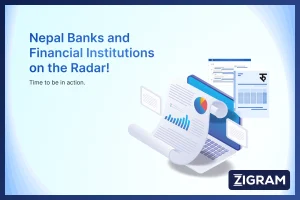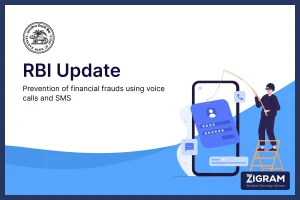As we move through 2024, the world of cryptocurrency is buzzing with excitement, drawing in both fans and investors with its continuous stream of new ideas and trends. This year, we’ve seen a renewed flurry of activity in the market, driven by advances in blockchain technology, changes in regulations, and the growing popularity of decentralized finance (DeFi) platforms.

Cryptocurrencies and digital assets are reshaping how we think about money and finance. Key trends such as stronger security measures, sustainable methods for creating new digital coins, and the use of artificial intelligence (AI) and machine learning in blockchain technology are shaping the future of cryptocurrencies. This year, we’re seeing more institutional investors getting involved, more industries using blockchain for various purposes, and more people getting interested because it’s becoming easier to understand and use.
But in this fast-changing world, one thing remains crucial: ensuring everyone follows the rules and keeps things safe. Banks and cryptocurrency trading platforms are under more pressure than ever to stop financial crimes. In this article, we’ll explore why compliance is so important in the world of cryptocurrency. We’ll look at the regulations, the challenges digital currencies bring, and how new technologies can help us meet these challenges.
Join us as we navigate the path ahead and see how ZIGRAM is leading the way in keeping our money safe and our systems secure in this exciting new world.
Different countries have their own AML regulations, which can vary significantly. Businesses must stay informed about and comply with these varying requirements to avoid legal penalties and reputational damage.
- In 2024, cryptocurrencies have become even more popular, with their total value reaching a whopping $2.5 trillion by May, up from $1.7 trillion in 2023.
- Bitcoin is still the most valuable cryptocurrency, worth over $1.1 trillion, followed by Ethereum at $450 billion.
- More and more people are using cryptocurrencies too – about 400 million people now, which is 25% more than last year.
- Big companies like Amazon, Tesla, and PayPal are starting to let people use cryptocurrencies to buy things, and that's making them even more popular.
- Plus, there are new technologies making cryptocurrencies work better, like Ethereum's move to something called Ethereum 2.0 and new ways of doing transactions like Polygon and Optimism, which make them faster and cheaper to use.
Crypto News: A Tale of Mixed Fortunes in 2024
Positive Developments
- Crypto VC Funding Surge: The first quarter of 2024 saw a significant rise in venture capital funding in the crypto sector, breaking a two-year decline. Total investments increased by 38%, and the number of funded projects jumped by 49%. This resurgence indicates renewed investor confidence and strong growth prospects for the crypto industry.
- Optimistic Market Outlook: Analysts exude bullish sentiment regarding the crypto market in 2024. Buoyed by a year of groundwork in 2023, experts anticipate a substantial adoption cycle underpinned by expectations of a bull market and heightened cryptocurrency adoption.
- Bitcoin ETF Approval: In January 2024, the SEC approved the first spot Bitcoin ETFs, marking a major milestone. This decision is expected to draw significant institutional investments, possibly sparking a record rally for Bitcoin and other cryptocurrencies. The market responded enthusiastically, with a $60 billion increase in total market capitalization following the news.
- Ethereum ETF Approval: The SEC's recent approval of spot Ether ETFs in May 2024 marks a significant vote of confidence in crypto. This move is expected to expand Ethereum investment to a broader audience, further integrating crypto into mainstream finance.
Negative Developments
- Security Issues: Despite the upbeat developments, the crypto landscape grapples with persistent security challenges. A malware onslaught targeting "Call of Duty" gamers resulted in the loss of their Bitcoin holdings, underscoring enduring vulnerabilities within the crypto ecosystem.
- AML Violations and Penalties: Despite regulatory mandates, many crypto exchanges flout AML laws, inviting scrutiny. The Commodity Futures Trading Commission (CFTC) recently levied charges against KUCoin for AML law breaches.
- Investor Losses: Investment fraud soared by 38% to $4.57 billion from $3.31 billion, as per the bureau's Internet Crime Report 2023. Crypto scams emerged as the foremost scam category, underscoring investor vulnerabilities.
- Regulatory Hurdles: Regulatory constraints persist as a prominent impediment. Stringent regulations across jurisdictions have curtailed market operations and dented investor confidence. This regulatory squeeze has been a pivotal factor in the negative market shifts witnessed in 2024.
Navigating Unique Cryptocurrency Challenges
Cryptocurrencies come with a unique set of challenges that are different from traditional financial systems. Their decentralized nature and often anonymous transactions make it difficult to trace the origins and destinations of funds, increasing the risk of money laundering and illicit activities. The rapid pace of innovation in the crypto world, including the rise of privacy coins and decentralized exchanges, makes it even harder for regulators to keep up and enforce rules.
Additionally, the lack of standardized regulations across different countries creates further complications, making it tough for governments to implement effective anti-money laundering (AML) measures globally. These regulatory challenges add to market uncertainties and can significantly impact investor confidence.
Navigating the Regulatory Terrain
In 2024, regulatory developments have taken center stage as governments worldwide create frameworks to govern the rapidly evolving cryptocurrency landscape. Key regulations include:
Cryptocurrency Taxation Update:
In March 2024, the U.S. IRS introduced guidelines requiring detailed reporting of all crypto transactions and a specific capital gains tax for digital assets to enhance transparency and reduce tax evasion.
MiCA Regulation:
Enacted by the EU in April 2024, the Markets in Crypto-Assets (MiCA) Regulation provides a comprehensive framework for cryptocurrencies and stablecoins, aiming to protect consumers and strengthen financial stability by imposing strict requirements on crypto service providers.
Digital Currency Law:
Japan's FSA implemented this law in February 2024, establishing legal guidelines for the issuance and operation of digital currencies, including CBDCs, to promote innovation while ensuring consumer protection and financial stability.
Cryptocurrency and Regulation of Official Digital Currency Bill, 2024:
This bill from India aims to create a framework for the Reserve Bank of India's official digital currency, while also banning private cryptocurrencies with certain exceptions to encourage technological development.
AML Solutions: Upholding Financial Integrity
When it comes to dealing with the unique challenges of cryptocurrencies, having strong Anti-Money Laundering (AML) solutions is crucial. These solutions use the latest technology to keep a close watch on transactions in real-time, spotting any suspicious activities and making sure everyone plays by the rules. By implementing robust AML frameworks, cryptocurrency exchanges, wallets, and other platforms can greatly reduce the risk of financial crimes, enhance their reputations, and build trust with both users and regulators.
Take the situation with Binance, for example. They faced serious penalties in 2021 due to not following AML rules properly. This really emphasizes how important it is to have strict compliance measures in place to avoid severe consequences. And not only that, but effective AML solutions also make the overall crypto ecosystem more secure, making it harder for fraud and illegal activities to happen. This creates a safer and more transparent financial environment for everyone involved.
ZIGRAM's Commitment to Compliance
At ZIGRAM, we understand the complex challenges and risks that come with the cryptocurrency world. That’s why we offer advanced AML (Anti-Money Laundering) and financial fraud screening solutions that are carefully designed to guide businesses through these tricky waters. Using cutting-edge technologies like Artificial Intelligence (AI), machine learning, and blockchain analytics, we provide comprehensive compliance solutions that protect your operations and strengthen your reputation. Join us as we navigate towards a safer, more compliant, and robust cryptocurrency landscape, built on trust, integrity, and innovation.
- #Cryptocurrency
- #AML
- #Compliance
- #RegTech
- #CryptoRegulations
- #GlobalRegulations
- #FinancialSecurity






